How Investing Fosters Eternal Outcomes in God’s Kingdom
Seeds sown, grown and replanted, over and over
Agricultural images are all over the Bible. Trees, gardens, fields, seeds, sowing—these concrete, earthy objects and practices show up throughout scripture as metaphors for life, growth, evangelism, and generosity, to name a few.
I’d like to broaden the application of one particular organic metaphor, sowing and reaping, to our investment mindset.
In 2 Corinthians 9:6-10, Paul speaks to us about where our financial resources come from and how they ought to be deployed, using the images of sowing and reaping. He says, “Whoever sows sparingly will also reap sparingly, and whoever sows generously will also reap generously.” He goes on to explain a cycle of abundance for the sowers that depends not on keeping for themselves, but rather on giving with cheer.
Next, he implies that any seed a sower is able to make use of comes not from the sower’s own resources, but from “[H]e who supplies seed to the sower and bread for food.” This same source “will also supply and increase your store of seed and will enlarge the harvest of your righteousness” (v. 10).
God is the source of the seed and of the increase. He provides not only for the farmer’s immediate physical needs in the form of a harvest of grain for his daily bread but also for his future needs in the form of seed for next year’s planting.
Like a farmer, a generous investor depends on God from start to finish.
What is the purpose of the seed?
God supplies our seed (investment) and even increases it so that we can be generous on every occasion (vv. 10-11).
The term Paul uses for “generous” denotes the singleness of a noble character, a pure heart, or a sincere intent. It signifies open heartedness with our possessions, the perfect opposite of self-indulgence. We make a grave error when we assume that any increase in our investment income is for improving our personal standard of living or indulging our own appetites.
Rather, the more we sow generously for God’s purposes, the greater the harvest will be—not for our own benefit but so that an increasing harvest of righteousness will be achieved. As investors, the more assets we thoughtfully and prudently deploy for kingdom purposes, the more profitable the eternal harvest will be.
A warning about a warning
Financial advisors may have warned you previously that you must protect the seed (your assets) for next year’s harvest (future growth opportunities). Christian investors or businesspeople are typically the first to express concern over deploying too much seed, thinking that they must be “good stewards.” They reason that seed protection is essential so it can grow more crops in the future. The thinking goes that if you give away too much, you will not have resources to produce more income in the future, crippling future donations.
This reasoning may have some value relative to excessive donations. But, I would argue that God supplies the resources for us to give. Therefore this line of thinking is not relevant to the concept of investing in missional enterprises. The act of investing itself is a valid way of planting seed for future harvest.
Although investing in frontier market businesses carries higher risk of financial loss than traditional investments, with proper business planning and accountability it is possible to achieve financial return in addition to the social, spiritual, and environmental impact so desperately needed in our world.
Investing in this way does not necessarily deplete the “seed” in the same way that donations might. Missional investments, in fact, should grow and multiply themselves. They can recycle financial resources continually so that impact is achieved over decades or centuries, not just a single time as most charitable donations do.
Eternal Outcomes: Pureflow, Uganda
Pureflow provides a lease-to-own financing program for drivers of Boda-Bodas, motorcycles that provide necessary transportation and a mode of delivery in East African cities. Ownership creates sustainable income, opportunities to save, and financial independence for the drivers and their families. Applicants are selected and background checked, trained on the driving and repair of the bikes, and set up with a lease-to-own agreement. After a final installment payment, the member receives ownership in their name with continued access to Pureflow as a resource.
Frank, in Mbarara, has a remarkable Pureflow testimony: from the profit of selling his first bike, he purchased land and a home for his family. His second bike has generated additional income to allow his wife to start her own business, and he is on his way to owning his third bike! His financial stewardship and personal growth from the Pureflow team and fellowships has enabled him to provide for his family in a way he never thought possible.
Frank and others show up in person at the Pureflow branches to make their weekly payments and join the fellowship group for discipleship and Bible study.
Investing for Eternal Impact: who will be next?
As stewards of God’s resources, we must invest in ways that accomplish His eternal purposes. He entrusts resources to us, but we often don’t see them that way—instead we squander or invest them poorly relative to achieving spiritual objectives.
Just as the business owners and managers of Pureflow enabled Frank to reap the harvest of the investor’s seed, Frank is sowing seed for his family and for the next generation.
This is the way it has been since Jesus gathered his twelve followers close to him: He lived among them, they imitated Him, and so on through history down to us. Jesus was alive then, He is alive now, and will be always alive in His followers. He is has freely given himself so that his fruit can be, sown, reaped, and sown again.
Let’s use the seed God gives us, as well as any increase He gives us, to build the next level out and offer an eternity of hope, dignity, abundance, and freedom.
